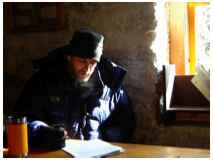School of Quietude
For those of you who are interested, Joseph Massey gave me a link to a well written 2006 essay by Kasey Mohammed concerning the School of Quietude debate.
He makes a number of excellent points in his article. Here's just one of the points that I found interesting:
Opposing quietude to post-avantism misleadingly suggests that there is no palliative work produced by those commonly classified as post-avant. Surely the "mood" of a good portion of the poetry written by such writers as--just to name the first few names that come to mind--Barbara Guest, James Schuyler, Liz Willis, Graham Foust, Michael Palmer, Cole Swensen, Jennifer Moxley, Joseph Massey, and Rae Armantrout could be characterized as "quiet," in the sense that it works via such effects as euphony, meditativeness, placidity, ethereality. Conversely, there are quite a few supposedly "mainstream" poets who routinely write in an emotionally and rhythmically volatile register. However one feels about the aesthetic value of a poet like Sharon Olds, for example, it is untenable to classify her verse as "quiet" or palliative.One interesting tid-bit. Having the A- vocabulary that I do, I looked up "palliative" to make sure that I was remembering the definition correctly. It means, "soothing, alleviating, sedative, calmative" all words, that could also be used to describe alcohol or tranquilizers, and therefore, not necessarily complimentary. The kicker is that my dictionary's full definition also includes the phrase "for the terminally ill." Ouch. As if fans of this writing were subconsiously drawn toward it to help ease the pain of their terminal illness. I doubt this is what Mohammad is getting at, but it does make for an interesting and rather strange side note.
In agreement with Mohammad, I would also characterize Joseph Massey, Jess Mynes, some of Aaron Tieger's work, Thomas A. Clark, John Phillips, etc. as "quiet," but not "quietude." For me, this is very interesting work—a type of post-ironic, attentive writing that represents one of the best strands of the contemporary poetry. "Palliative," though, is not the word I would have chosen to describe it.

No comments:
Post a Comment